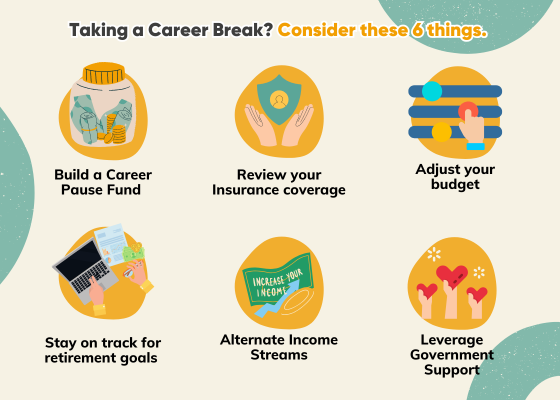Note: It was announced in November 2023 that MoneyOwl will be acquired by Temasek Trust to serve communities under a re-purposed model, and will move away from direct sale of financial products. The article is retained with original information relevant as at the date of the article only, and any mention of products or promotions is retained for reference purposes only.
______________
After working and saving hard for most of your life, how do you prepare for the next stage of your life – retirement?
According to a 2021 survey ‘Rethinking Retirement’ released by Fullerton Fund Management, 84% of respondents agreed that retirement is another life stage and not just an endpoint. It is also a period of time that offers plenty of opportunities to learn, grow and enjoy new experiences. Since this phase of our life can stretch for as long as 20 or 30 years, there is much to plan for the longest holiday of your life.
Adjusting your mindset
In 2020, more than 57% of those aged 60 to 69 remain employed. Some may continue working due to lack of choice, but perhaps many do so to remain physically, mentally, and socially active. If you have ever taken a gap year in your work, you would realise how quickly you run out of things to do after a few months and the emotional and psychological complexities of that. Indeed, what is often underestimated is the emotional journey of a retiree. According to the New Retirement Mindscape II study (Ameriprise Financial Inc), there are six stages in this journey:

Source: The New Retirement Mindscape II Study, 2010 Ameriprise Financial Inc.
As a pre-retiree, you may be in the Imagination stage where you start imagining what retirement life could look like but remain unprepared due to current obligations. You may also be in the Hesitation stage, where you are actively seeking advice and the ability to cover your healthcare costs becomes a particularly important concern for you.
As retirement dawns, you approach the Anticipation stage with excitement, hope, and empowerment especially if you have been on track in your planning. Ironically, during the Realisation stage, retirees could feel a little let down from the loss of employment despite the build-up to this moment. This emotional stage improves only upon modification of routines and goals during the Reorientation stage. During the Reconciliation stage, physical disabilities and gradual loss of loved ones can lead to a sense of emptiness. Retirement is thus not always a bed of roses, emotionally or otherwise.
In the same study by Fullerton Fund Management, respondents shared that retirement goals can evolve – they could first centre on one’s desire to grow and pursue passions (e.g. learn new skills, start a business, etc.), before transiting into more practical needs (e.g. seek additional or alternative income sources) and eventually settling around the pursuit of leisure and relaxing activities (e.g. hobbies, travel, time with loved ones). Clearly, retirement can only be truly fulfilling if you are active and doing something that is of meaning to you.
As such, before you decide to wrap up your career, think about how you can spend your golden days with intention and meaning. You can consider signing up for various courses and activities at your local community centre, volunteering part-time as an adviser to your former company or even pursuing further education. Retirement then transforms from being an end point to a phase of life when you can finally do the things you have always wanted to do but lacked the time to.
Staying employed or re-employed
From a financial perspective, you need to consider if you would benefit from delaying retirement. As you are your most important financial asset, don’t discount how work can still contribute to your own well-being, monetarily or otherwise.
The Government has been improving the infrastructure to help those who are able and willing to work longer. The statutory retirement age in Singapore is 62 years old. What this means is that your employer can choose to terminate your employment without compensation when you turn 62 years old. But in view of our tight labour market, decreasing fertility rate and increasing life expectancy, the Re-employment Act was passed in 2012. With this in place, your employer will need to offer you (subject to eligibility criteria) re-employment beyond 62 years old, on an annual basis, up to age 67. At the National Day Parade 2019, Prime Minister Lee Hsien Loong announced that by 2030, the retirement age and consequently the re-employment age will be gradually raised to 65 years old and 70 years old respectively.
As such, your decision to retire requires careful examination from the emotional, social and financial perspectives. That is why having a comprehensive retirement plan in place will provide you with greater confidence in your decision. In the next five articles in this series, we will deep dive into preparing yourself financially for retirement.
For a holistic, unbiased review of your financial portfolio, speak to a friendly MoneyOwl adviser today.
READ NEXT: Ensuring you have a home to stay in
This article was first published in May 2021 and updated in August 2021. This article is part of a bigger series “The Ultimate Guide To Retire Comfortably In Singapore” – click here to view all the articles in the series.




